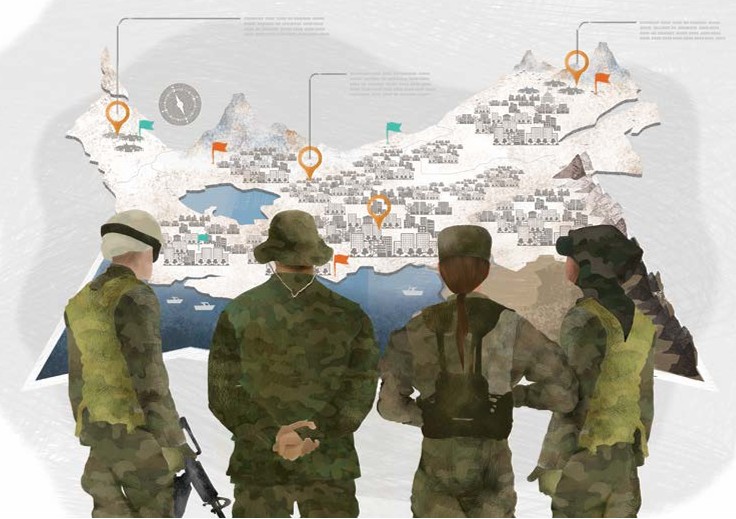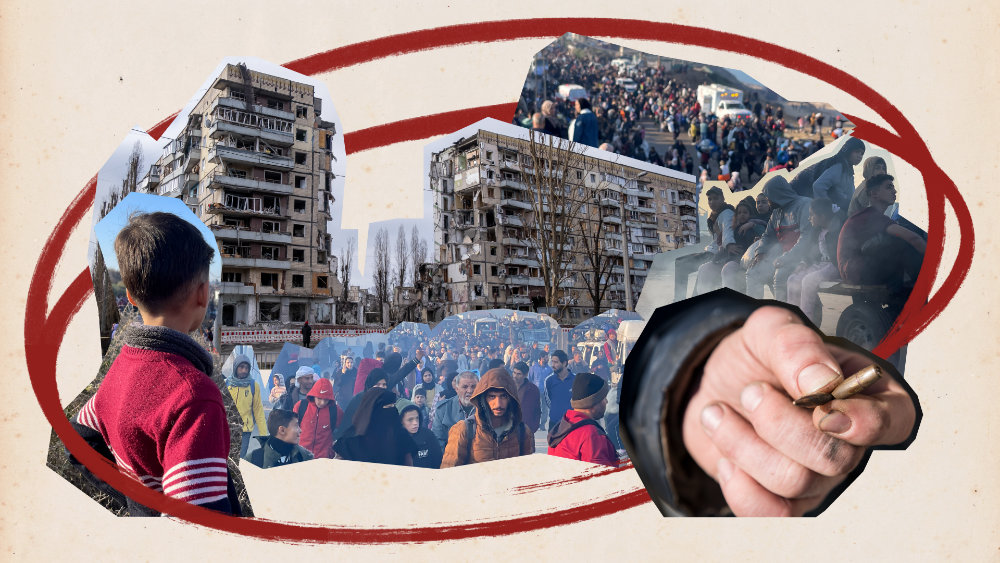Colombo was an ideal place for a launch of this edition of the Review, which featured three articles on measures being taken on behalf of missing persons and their families in Sri Lanka (‘Families of the missing in Sri Lanka: Psychosocial considerations in transitional justice mechanisms’, ‘The Sri Lankan Office on Missing Persons: Truth and justice in tandem?’ and ‘The Office on Missing Persons in Sri Lanka: The importance of a primarily humanitarian mandate’).
The choice of venue was symbolic. Important work is being done in Sri Lanka by many actors, including the ICRC, to address issues related to missing persons, not least the psychosocial needs of their families. Three years earlier, in 2016, the ICRC published a report on the needs of families of missing persons in Sri Lanka, based on a country-wide needs assessment study. The vast majority of families consulted in that study spoke of the need to know the fate and whereabouts of their missing loved ones.
The launch featured an introduction by ICRC Head of Delegation Loukas Petridis, a keynote speech by noted ambiguous loss expert Dr Pauline Boss and an expert panel discussion on the provision of psychosocial support to families of missing persons: theory and practice, with Simon Robins, Gameela Samarasinghe, Maleeka Salih, Ananda Galappatti and Maia Alkhazishvili.
As Loukas Petridis pointed out during this launch, “Behind every missing person there is a family…the families of missing persons are living in uncertainty and have little outlet for their anguish. Communities are profoundly affected by the disappearance of persons, as the suffering of individuals weighs heavily on the community as a whole.”
In her keynote speech, Pauline Boss echoed some of the main points in her Review article. There, she asserts that “In the absence of proof about the whereabouts of the missing person, families (and the professionals who work with them) must shift away from the secure knowledge of absolute thinking—i.e. ‘My husband is either dead or alive, absent or present.’ Instead, we encourage families to use a more paradoxical way of thinking—i.e. ‘My husband is both absent and present. He is probably dead, but maybe not’… The intervention goal then becomes one of finding the resilience to live with the mystery rather than finding a solution.”
Simon Robins, in his intervention, emphasized the importance of providing psychosocial support and the theoretical aspects underpinning psychosocial support for families of the missing, looking at therapeutic approaches and giving some examples of his own experiences as a practitioner working in various contexts in the field, particularly Nepal. He provided practical insights into the social impacts of the ambiguous loss families suffer when they don’t know what happened to their relative.
Maleeka Salih and Gameela Samarasinghe drew on their article to highlight the importance of taking into consideration support approaches in transitional justice and “dealing with the past” mechanisms. Ananda Galappatti then looked at the mental health and psychosocial support (MHPSS) sector as a whole to share his insights into how support to the families can be operationalized and the opportunities and challenges that this can present. Maia Alkhazishvili closed the panel by outlining the ICRC’s approach to providing psychosocial support, giving examples from her own experience working in Georgia accompanying families during specific moments in the search and identification process.
All panelists were adamant that psychosocial support is important for families to be able to move forward in their lives, both in Sri Lanka and elsewhere in the world. Based on the ICRC’s experience, what families ultimately want is an individualized response to what happened to their missing loved ones. For all those who are working to address this need, it is essential to take the psychosocial needs of these families into account.
* * *
Although the launch focused specifically on psychosocial support for families during transitional justice processes, the edition on ‘The Missing’ is broader in scope. It takes stock of recent advances in the humanitarian sector with the aim of promoting best practices and mobilizing action to clarify the fate and whereabouts of missing persons and respond to the needs of their families. It features articles related to the international legal framework, the search for missing persons, the identification of human remains and support to families of missing persons.
To learn more about what is being done to address the needs of the missing and their families read the full edition on ‘The Missing’ online here
See also
- Blog post (second part) – The Missing: What’s in this edition of the Review
- ICRC Guidelines on Mental Health and Psychosocial Support
- Testimonies of the Families of Missing Migrants in Zimbabwe






Comments